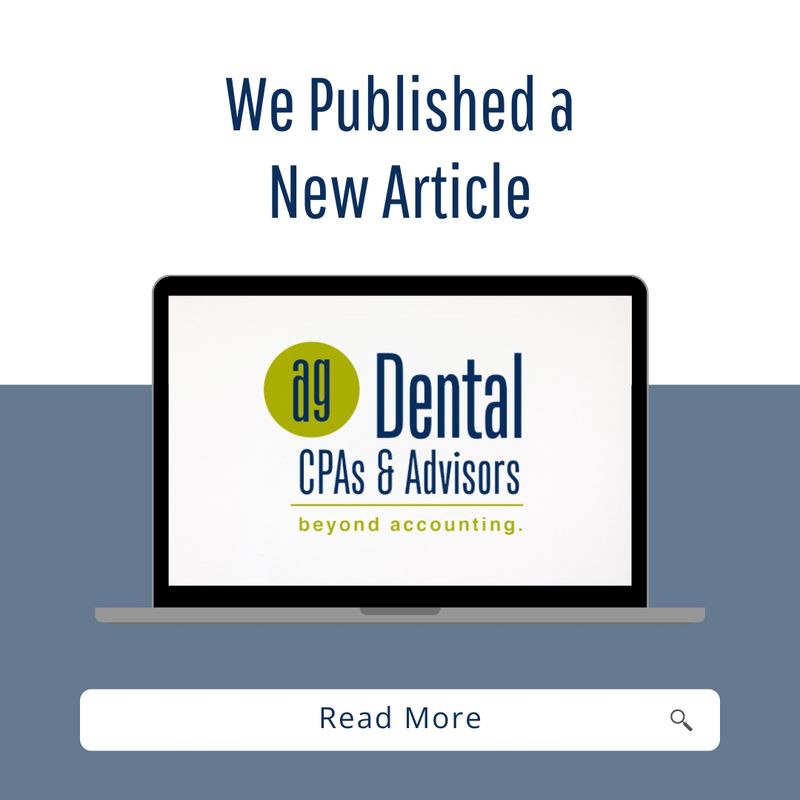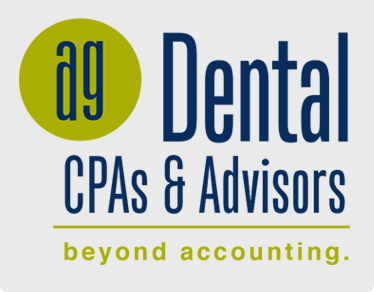
For dental practices, maintaining a healthy cash flow is essential for growth, expansion, and long-term stability. Cash flow is the lifeblood of your business, representing the money flowing in and out. Optimizing it ensures you can meet your financial obligations, invest in new opportunities, and stay resilient during economic fluctuations. At AG Dental CPAs & Advisors, our team of experts, including your trusted dental CPA in Baton Rouge, is here to help you implement strategies that improve cash flow and position your practice for success.
1. Improve Accounts Receivable Management
Managing your accounts receivable efficiently can have a significant impact on your cash flow. Here’s how:
- Invoice Promptly and Accurately: Send invoices as soon as services are rendered. Accurate and timely invoices prevent delays in payments.
- Offer Early Payment Incentives: Encourage quicker payments by offering discounts for early settlements.
- Use Electronic Invoicing: Digital invoices are faster, more reliable, and easier to track than traditional paper-based methods.
- Implement a Strict Collections Process: Follow up on late payments with a clear system, using reminder emails or calls to ensure timely payment.
2. Manage Accounts Payable Strategically
Effectively managing your accounts payable helps control cash outflows:
- Negotiate Better Terms with Suppliers: Work towards longer payment terms or discounts for bulk orders.
- Prioritize Payments: Pay essential suppliers promptly to maintain strong relationships while managing your overall cash outflow efficiently.
- Take Advantage of Early Payment Discounts: If financially feasible, paying early can earn you discounts, improving long-term savings.
3. Optimize Inventory Management
For dental practices, keeping inventory in check ensures smoother cash flow:
- Implement Just-in-Time (JIT) Inventory: Order supplies as needed to minimize excess stock.
- Use Inventory Management Software: Track your stock in real-time to avoid overstocking or running out of essential supplies.
- Analyze Inventory Turnover: Review which items sell frequently and adjust your purchasing strategy accordingly.
4. Control Operating Expenses
Keeping your operating expenses under control is crucial for maintaining cash flow:
- Review Expenses Regularly: Regularly audit all expenses to identify areas where you can cut costs without sacrificing quality.
- Outsource Non-Core Activities: Consider outsourcing tasks like IT support, HR, or accounting to save on the cost of in-house teams.
- Implement Energy-Efficient Practices: Reducing energy consumption can lead to significant savings on utility bills.
5. Enhance Revenue Streams
Increasing revenue and diversifying income streams directly contribute to better cash flow:
- Upsell and Cross-Sell to Existing Patients: Offer additional or higher-value services to current patients.
- Explore New Markets: Expanding into new geographic areas or offering specialized services can open up new revenue opportunities.
- Leverage Online Channels: Take advantage of digital platforms to promote services, book appointments, and reach a broader audience.
6. Use Financing Options Wisely
Strategically using financing can help manage cash flow and support growth:
- Line of Credit: Maintain a line of credit as a safety net for short-term cash flow gaps.
- Invoice Financing: Sell unpaid invoices to a financing company for immediate cash, improving liquidity.
- Term Loans: Use long-term loans to finance major investments or expansion efforts, spreading out the cost over time.
7. Monitor and Forecast Cash Flow Regularly
Staying ahead of cash flow issues is easier when you monitor and forecast regularly:
- Use Cash Flow Forecasting Tools: Utilize software to predict cash flow trends based on historical data and upcoming expenses.
- Prepare for Seasonal Fluctuations: If your practice experiences seasonal highs and lows, plan accordingly by managing reserves and adjusting spending.
- Set Up Cash Flow Alerts: Set alerts for low balances or unusual transactions to quickly address potential issues.
Optimizing cash flow is the foundation of a successful dental practice. By implementing these strategies, you can stabilize your cash flow, seize new opportunities, and confidently expand your practice. At AG Dental CPAs & Advisors, our team is dedicated to supporting dental practices with expert financial advice. As your go-to dental CPA in Baton Rouge, we’re here to help you reach your financial goals and drive your practice’s success.
Contact us today to schedule a consultation and discover how we can help you take control of your cash flow and achieve lasting growth!
